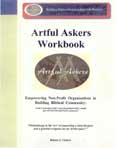|
|
Building Biblical Relationships
with Funders. . .
by Robert J. Vickers
Another typical day in the home office, answering questions and coaching more than 50 faith-based and community leaders to access funding or other resources to meet needs in their community and coaching an average of 5 donors per day on how to give to the right groups: After almost three decades in the industry, I have learned to say the same thing to everyone who calls because the Bible doesn’t change. Although I don’t use religious words, the principles are rooted in Scripture and work because the Bible works. During the past 20 years alone, through workshops and speaking engagements, I have told more than 26,000 “Doers” and more than 2,500 “Donors” the same principles applied to funding that are applied to many other relationship-building materials, too. I can recite the words from phone calls in my sleep and am often awakened by my wife doing just that!
Pastors and ministry-leaders call wanting money. “I need to hire a grantwriter.” “I don’t want to learn anything, I want cash.” “I am starting out and only need three million dollars to change the world.” Old timers in this industry remember when you could write a grant, send out a bunch of copies, and wait six weeks to start receiving and cashing the checks. Times have changed and grantwriters are a dime a dozen. You can actually write the best proposal ever written BUT if you don’t know what to do with it, it will be an excellent but worthless document.
It doesn’t work the same way anymore. There are more than one million IRS-recognized nonprofits in the U.S. today. When counting organizations under each umbrella, that number goes to about 2.3 million groups. Add the number of churches in America and there are 3 million domestic nonprofits. Guess how many of them need money? All of them!
|
 |
 |
|
 |
 |
Listen to these realities:
–Only 27% of nonprofits are ready to receive.
–Less than 10% of the churches are ready to receive.
–Only 10% of the nonprofits/churches have a written document--the average is 22 pages long.
–Less than 10% of the 10% who have a written document share an appropriate vision.
–The average “look” at your document from a funder is about 18 seconds before they decide to screen you to rejection.
–The average in-person meeting with a funder is the result of 5 contacts BUT lasts 6 to 8 minutes before losing them.
–Most nonprofits and churches don’t know what they don’t know.
|
|
Sure, there are more than 100,000 foundations and thousands of corporate-giving programs. Many churches support social causes and the American public is the most giving group of people in the world. Hundreds of billions of dollars are given every year–and cash only accounts for about 8% of giving. In other words, even though hundreds of billions of dollars are given for philanthropic causes, more than a trillion dollars in in-kind giving takes place through products, services, stock and bond transfers, donations of cars, boats, homes, land, and so much more. Yet most don’t have the capacity to receive. There are sites like www.idonate.com that are set up to help you receive these types of donations for a small fee.
The average donor in America who gives one million dollars or more annually is asked an average of 28 times every single day for money. The amazing thing is that funders know money is never the problem, nor the solution. They want to support vision and its’ impact on people served NOT a request focused on need for money. When you do what everyone else does, you get what everyone else gets.
When people consider the entire Biblically-based presentation of the concepts, they experience freedom from the pressure to accomplish something beyond themselves. It is an amazing transformation to those that have ears to hear. If people perish from a lack of knowledge–and they don’t know what they don’t know, how can they learn? Please hear it out. . .
|
 |
 |
|
 |
 |
Building Biblical Relationships with Funders. . .
I. What do you mean, “Building?” Relationship equals communication but both take hard, deliberate work. Most of us make that commitment in marriage, parenting, jobs, friendships–why not in funding and other resources? We must take time in any meaningful relationship–including those that involve funding, to incorporate strategies that build on common understandings. If the mandate of the New Testament is to be other-oriented, we must take the time to do due diligence and engage those that have similar interests, desires, goals–BOTH doers and donors. We must cooperate and collaborate with people around us to meet needs in our community by working together. Read Acts 2:41-47: when we break bread, fellowship, cooperate and collaborate, He shows up! When two or more are gathered, He is present. He uses rocks and stick and jawbones of donkeys (and more) to accomplish His will.
Think of “building” as being the entire farming process NOT just harvesting a crop. We must take more time than just our immediate need for cash to discover much more than we know about ourselves, the population we are serving, and people that share our desire to help those we are helping as-well-as those who potentially support us. Thinking of the larger problem and in the longer run allows us to adequately sow, strategically plan and nurture, and, eventually, harvest.
|
|
II. What do you mean, “Biblical?” If money follows ministry and we know that there are many givers BUT only One Provider of every good and perfect gift, wouldn’t it make sense that, “God’s work, done God’s way, will produce His results and will never lack His resources. We must look at philanthropy and ministry through a different set of eyes and seek to understand the responsibility that has been entrusted to us. We must first BE (which is the personal development and realization piece) and then DO (engage in loving your neighbor as yourself so as to follow the model of the Scripture). BEing and DOing your part so that He will BE and DO His part (the provision). Think of it this way: BE –> DO –> and you will HAVE. Remember, our Daddy owns the cattle on a thousand hills and even the wealth of the wicked is laid up for the righteous. The Scripture also teaches that God allows the wicked to prosper so as to gather the wealth so that He can redirect it at His pleasure.
III. What do you mean, “Relationship?” There are a number of key common qualities and characteristics that are necessary for successful relationships as seen in Scripture. We must relate to all people in all relationships in certain ways revealed and modeled in Scripture if we want relationships to be successful. We must take an interest in a prospective funder enough that we learn who they are, what their interests are, and what they do BEFORE we approach them and seek their support. We must always interact with respect, honor, dignity and many other characteristics and character qualities and be positive NOT negative. We must respect and appreciate the things they are involved in whether we directly see a connection to us or not.
Remember, “Where the money is, the heart is” and, to be straightforward, it is their money. Let’s take the time to learn the heart of others who provide resources and learn to communicate in their language–NOT expect them to learn to communicate in ours (or any of the 3 million faith-based and community organizations out there). We know the three variables that determine 72%of all positive funding decisions so focus on these: 1) do you know a funder or someone who knows them? 2) are you connected to a common group geographically? and/or 3) do you share with them a common field or topic of interest?
Let’s think of grantwriting and fundraising compared to Scriptural models and concepts and start with that understanding. We cannot violate Biblical principles and expect to be successful can we? Let’s not use religious words but rather think, “What is the social value of what we do” and its’ measurable effect on those we serve in the community and share that vision with others in order to cooperate and collaborate to meet the need.
|
 |
 |
|
 |
 |
IV. What do you mean, “with Funders?” We must also be a good steward of ALL that is around us and be good stewards of little so that more will come. Board Members, volunteers, staff, resources, and much more that is already in our hands: We must appreciate them sufficiently, see to their time, document and leverage adequately, and remember that people who give know others who give. Giving may refer to money BUT giving may also be of another type of their resource like their time, their energy, their expertise, their relationships and connections, their encouragement, their vision, support, affirmation, inspiration, and much more!
We have many supporters around us already (Board Members, family, community, other churches). So we must share our vision with the right people, at the right time, requesting the right resource. We must use gleaners, leveragers, and multiply talents with contacts, supporters, and funders around us. We need to know who the foundations, community foundations, corporations, churches, individuals, State and Federal sources of funding are that are givers in our area. We must also know how they think, what they look for, how they make decisions, when they give, and so much more.
Once you are ready to receive, have embraced these concepts, and weighed them openly on your heart and mind as you ask, seek, knock, and look to find, there are really only three simple primary parts to the process. . . (Also learn more at www.ArtfulAskers.com and/or at www.ChristianFoundationGrants.com).
|
|
The Three Parts to the Process
1. The written document must share your vision in a convincing, compelling, and concise manner. It should be focused on meeting needs of people and it must reflect your vision (Habakkuk 2:2-3) before sharing it with others. Two thirds of the effectiveness of the written document is content. What you say matters. However, a full one-third is format--not only does WHAT you say matter--but how you say it does as well. The written document accounts for 25% of the success of the overall process.
We must allow Him to change our hearts and move us to where He is working. We must yield, so that He can accomplish through us what we cannot even dream of. But again, with our actions–NOT just the religious words.
We know where to go at the public library and on the internet to find the research of prospects and even know the three variables to look for that account for 72% of all positive funding decisions. This research accounts for 25% of the success of the overall process. We believe and teach that we already have enough contacts with first- or second-generation relationships to fund everything that God has called us to do. However, there are other websites that will give you access to many topic-related funders for a small, fair, annual price. For example, www.ChristianFoundationGrants.com has built an excellent database of 4,500 Christian-focused funders that you can learn all about, peruse each funders’ 990, and find out their areas of interest, geographic focus, contact information, and much more.
2. The research is the second step in the process. Stewarding the relationships around you--your volunteers, Board Members, corporations involved in your community, foundations in your city, state, region, and more. You probably have many contacts with funders BUT don't know what you don't know. There is more than enough money within a 50-mile radius of you, your Board members, and primary service area to do what God has called you to do. Where God guides, He provides but you can do your due diligence to know and steward the relationships around you.
Create a written piece that will enhance your chances of being considered and minimize an immediate rejection. In general, you must know what you know and be able to express it in writing without telling everything! Your written document only gets an average look of 18 seconds! They don't want to know all that you know but they want to know that you know it. With a very few exceptions, the written document will be a one-and-a-half page cover letter (we know what to put where in every paragraph), a one-page Summary Page that gives them everything they need to legally cut a check, and a two-page proposal with a simple Budget. Share your vision in three- to five-pages in an other-orientation. We know everything needed to know about your written document including the font to use, the font size, the preferred margins of the pages, and nearly everything physical for the written document. We know what to bold and underline, emphasize, etc. We know the fatal flaws to avoid in order to get your foot in the door of consideration. We know the timing for submissions in order to be more likely considered, and almost everything else for the format and content to be successful in gaining a few minutes of extra consideration for an opportunity to share your vision with a decision-maker and get positive consideration. Your proposal will work with individuals, corporations, foundations, churches, and even the government's faith-based and community initiative.
|
 |
 |
|
 |
 |
3. The third part of the process is engaging in the relationships whether through rejection, approval, large gift, widow's mite, or whatever. More than 50% of the success of the overall process is developing the Biblical relationship with a funder through either an approval OR rejection: Ten lepers got what they wanted from Jesus but only one returned to show sufficient appreciation–and they got what they wanted! Don't show appreciation if God has not changed your heart to be appreciative–that is simply manipulation. Ask God to change your heart and allow you to feel and express this compassion.
In summary and conclusion, here are the important things to know about Biblical philanthropy:
1. There are many funders BUT only One Provider.
2. Money and resources are available: We must learn how funders think, who they are, and who they give to.
3. Get ready to receive, know your mission, calling, and purpose, share it with others, and create/steward the connection.
4. Know how to leverage (leveraging, gleaning, multiplying talents) and all that is around you.
5. Cooperate and collaborate in your organization, your community, your region, etc.
6. Have a written document that is convincing, compelling, concise and other oriented.
7. Know the connections and relationships around you—first- and second-generation.
8. Intentionally and purposefully engage to build relationships through other-orientation.
9. In approval, be grateful, appreciative, and engage in expressing sufficient appreciation to build a relationship.
10. In rejection, be gracious, grateful, and engage in expressing sufficient appreciation to build a relationship.
11. Teach others what you know and help them to learn the process in meeting needs.
12. We must cooperate and collaborate with each other as we seek to meet needs in our communities remembering that we are on this side of the Jordan for only a few short scores of years BUT we will spend eternity together!
Also, here's a great tip: Don't over analyze-just do it. . . Go to Wal-Mart or a sporting goods store and buy a pair of knee pads. Take a permanent marker and write "I can't. You can't. But He Can! Phil 4:13 and Phil 4:19" on them and begin to use them daily! Put them to work and stay on your knees! Seek God even if it means rug burns on your forehead. Then buy a pair for each member of your staff and Board of Directors and challenge them to join you in asking God's provision for the ministry. He is the same yesterday, today, and forever: We must allow Him to change our hearts so that we can join Him where He wants us! He will NEVER change to join us. We MUST change and join Him where He is!
Building the relationship this way is 50% of the success of the overall process and we know the steps to take toward sufficient appreciation whether you are rejected or approved. I walk you through some of the key considerations of building this relationship and help you understand how to develop healthier habits and practices to do this God's way.
When you get money or other support, be appreciative and expressive! Write an immediate thank you note and then engage in an appropriate expression of appreciation. Appreciate the $50 dollar gift AND appreciate the $100,000 dollar gift. But what about when you don't get what you want? When you are rejected, take the time to be gracious and appreciative for the consideration and thank them for what they are doing to meet the needs of people in your community even if you don't benefit financially. Taking the time to write this note, if you really mean it, will open an opportunity many times.
|
|
Remember, there is no human need that lacks divine provision! God is doing a tremendous work throughout the United States and the world. It is through faithful, humble, obedient servants who will take the time to learn, engage, and then teach others how to build Biblical relationships with funders and other resources. He needs our hearts, our yielded spirits, and our desire to love Him and serve Him His way! Are you willing to do that? If so, we are here to help you.
Bob does coaching, phone conference calls, webinars, and consulting with Servant Christian Community Foundation (www.ServantChristian.com), Christian Foundation Grants (www.ChristianFoundationGrants.com), many other groups throughout the United States. He has coached doers and donors from every state and 63 different countries with this same process.
Bob Vickers is the Founder and President of Artful Askers. Bob, his wife Connie, and their children reside in Warrensburg, Missouri (in West-Central Missouri). He is a writer, an accomplished researcher, academician, instructor, author of numerous books and training manuals, philanthropist, nonprofit executive, and an entrepreneur of a variety of ministries. The common emphasis of his material and life's work is building Biblical characteristics into all types of relationships: Marriage, family, dating, parenting, friendships, neighbors, church, community, and funding. Learn more at www.ArtfulAskers.com OR www.BobVickers.com. You can buy his entire one-day workshop on DVD here on this website!
|
 |
 |
|
|